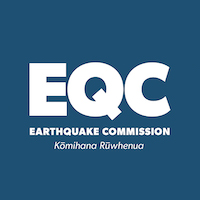Source: Earthquake Commission – EQC
What is bigger than the Alpine Fault, capable of a magnitude 8.9 earthquake that could see shaking that lasts for minutes, and is likely to generate a tsunami that could arrive at some parts of the Wellington coast within 10 minutes?
The answer is the Hikurangi subduction zone, New Zealand’s largest earthquake fault and a hazard that communities are learning about through East Coast LAB’s Life at the Boundary Roadshow, which comes to several locations across the Wellington region next week. The roadshow is funded by the Earthquake Commission (EQC).
Leading New Zealand seismologist Dr Caroline Holden and Project Leader Kate Boersen will share the latest Hikurangi subduction zone science and hazard impact information for Wairarapa, Wellington and the Hutt, areas likely to be affected by a large earthquake and tsunami along the Hikurangi subduction zone.
“Because the Hikurangi subduction zone lies beneath our feet, it’s less obvious than some fault lines that we can observe on land, like the Alpine Fault,” says Kate Boersen. “But the Hikurangi subduction zone is the same type of fault that are responsible for most of the world’s largest earthquakes and tsunami, with the 2011 Japan M9.1 earthquake being the most recent example.”
The Hikurangi subduction zone runs along the boundary where the Pacific tectonic plate moves beneath (subducts) the Australian plate. The zone runs about 50-100km offshore from Gisborne to Marlborough and is not just New Zealand’s largest fault – it’s our most active.
The Hikurangi subduction zone has likely ruptured ten times over the last 7,000 years with the last subduction earthquake occurring around 520 to 470 years before present.
This latest research on the Hikurangi subduction zone informed the development of a credible M8.9 earthquake scenario, as scenarios are used by emergency managers to prepare for future events. Still, an event like that would be by far the largest earthquake seen in New Zealand since European arrival.
“Because of the proximity of the Hikurangi fault to population centres we’d expect an earthquake based on the M8.9 scenario to be felt strongly across much of the North Island and upper South Island,” says seismologist Dr Caroline Holden. “For areas of the Wellington region the shaking intensity could be severe to extreme, which means damage or collapse of unreinforced chimneys, homes moving off foundations if they’re not correctly secured and other serious impacts.”
It’s an unnerving thought, particularly once you factor in secondary hazards such as multiple landslides and a tsunami that is likely to arrive on Wellington’s south coast within 10 minutes of the earthquake occurring and within 30 minutes for the inner harbour, affecting areas such as the CBD and Petone. But the main message that the public should take away from the roadshow? Don’t be scared, be prepared.
“While big hazards like the Hikurangi subduction zone aren’t much fun for us to think about, what’s important to remember is that it’s actually great we know they’re there so we can study them and prepare accordingly,” says Dr Jo Horrocks, Chief Resilience and Research Officer with the Earthquake Commission. “We know that earthquakes and other natural hazards are a fact of life for New Zealanders, so we all have a role to play in doing what we can to be ready for future events.”
“Luckily there’s a lot we can do. From securing tall and heavy furniture in our homes, to storing food and water, and knowing our tsunami evacuation routes. These are all things that will lessen the impact of a Hikurangi subduction zone event.”
The Life at the Boundary Roadshow will be taking place at the following locations across the Wellington region. All events begin at 7pm and are free of charge.
Wairarapa: Monday 31 May, Carterton Events Centre, 50 Holloway Street Carterton
Lower Hutt: Wednesday 2 June, Pelorus Trust Sports House, 93 Hutt Park Road, Moera, Lower Hutt
Wellington: Thursday 3 June, Wellington High School Hall, 249 Taranaki Street, Mount Cook, Wellington



